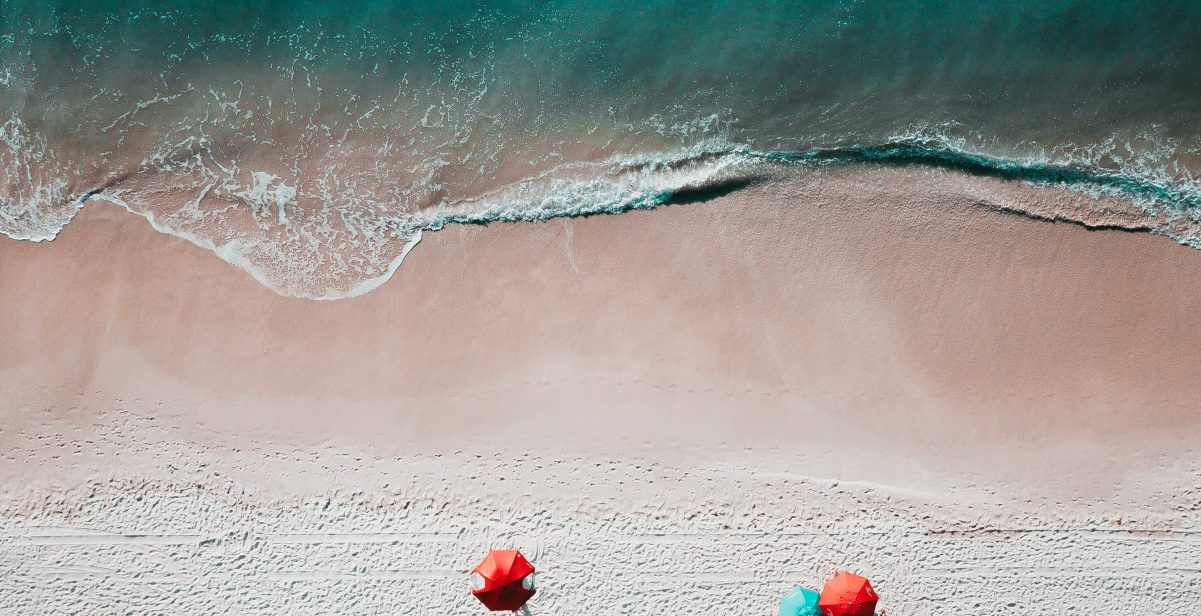Everyone knows the importance of applying sunscreen. But there’s more to consider than avoiding sunburn alone. A growing body of evidence shows the damaging effects sunscreens have on our surroundings. Read on to find out how sunscreens work and the impact they have on the environment. And discover six eco-friendly sunscreens.
Sun creams fall into two general categories:
- Physical sunscreens contain minerals that act as a barrier to deflect the sun’s rays.
- Chemical sunscreens use synthetic compounds to soak up UV light before they reach your skin.
The main problem is that sunscreen washes off in the water. And according to National Geographic, an estimated 14,000 tonnes of it gets into the ocean every year. One report found that ingredients in most chemical sunscreens (oxybenzone, octocrylene and octinoxate) are toxic to coral reefs, algae, sea urchins, fish and mammals.
Just one drop of oxybenzone diluted in four million gallons of water endangers aquatic life. Sunscreens also contain harmful preservatives. Hawaii and Palau have even gone as far as banning sales of sunscreens that harm the environment.
The best solution is to avoid sunscreens altogether. Instead, change your behaviour around the sun while on holiday or at home.
Clothing is a great way to avoid UV rays. It’s worth investing in good quality products that will stand the test of time. Buy an umbrella for your personal patch of shade. Plan your day around the sun. And enjoy those rays in the early morning or late afternoon when the sun is lower in the sky.
However, there might be times when you simply must reach for the sunscreen. So here are six eco-friendly sunscreens for you to choose from.
Badger SPF 30 Sunscreen
Badger Sunscreen is one of the best eco-friendly sunscreens on the market. It contains no harsh chemicals and is hypoallergenic. Eighty-seven percent of the ingredients are certified organic, making this sun cream safe for the whole family as well as the environment. To top it all off, it’s biodegradable and doesn’t harm the ocean.
Green People SPF 30 Eco-Friendly Sunscreen
Green People is 78% certified organic and eco-friendly to boot. It’s free from parabens and other harsh substances. And it’s also reef-safe.
Sol De Ibiza Sunscreen
Sol de Ibiza is a plastic-free sunscreen. It’s made with organic and cruelty-free ingredients and is water-resistant and reef-safe.
Odylique Natural Sunscreen
Odylique Natural Sunscreen is 100% natural and eco-friendly. It was the first sun lotion to be accredited as both Fairtrade and organic. It’s also reef-safe, hypoallergenic, cruelty-free and certified vegan.
Alba Botanica Sensitive Fragrance Free Sunscreen Spray SPF 50
Alba Botanica’s Mineral Sunscreen is a spray rather than a cream. It’s water resistant, suitable for sensitive skin and won’t harm coral reefs.
People4Ocean Sun Care
People4Ocean is made with solar power and sustainable practices. It comes in plant-based packaging and is biodegradable. It’s cruelty-free, 100% organic, and free from water-polluting ingredients, making it reef-safe.
Be wary of brands that say they offer complete protection, and look for ones that give broad-spectrum protection instead. Opt for sun creams that offer both UVA and UVB protection.
But do remember, no sun cream will completely protect your skin, no matter what the label says. The best way to avoid sunburn is to stay out of the harmful rays in the middle of the day or cover up when out and about.
Happy eco-friendly, reef-safe holidays!
